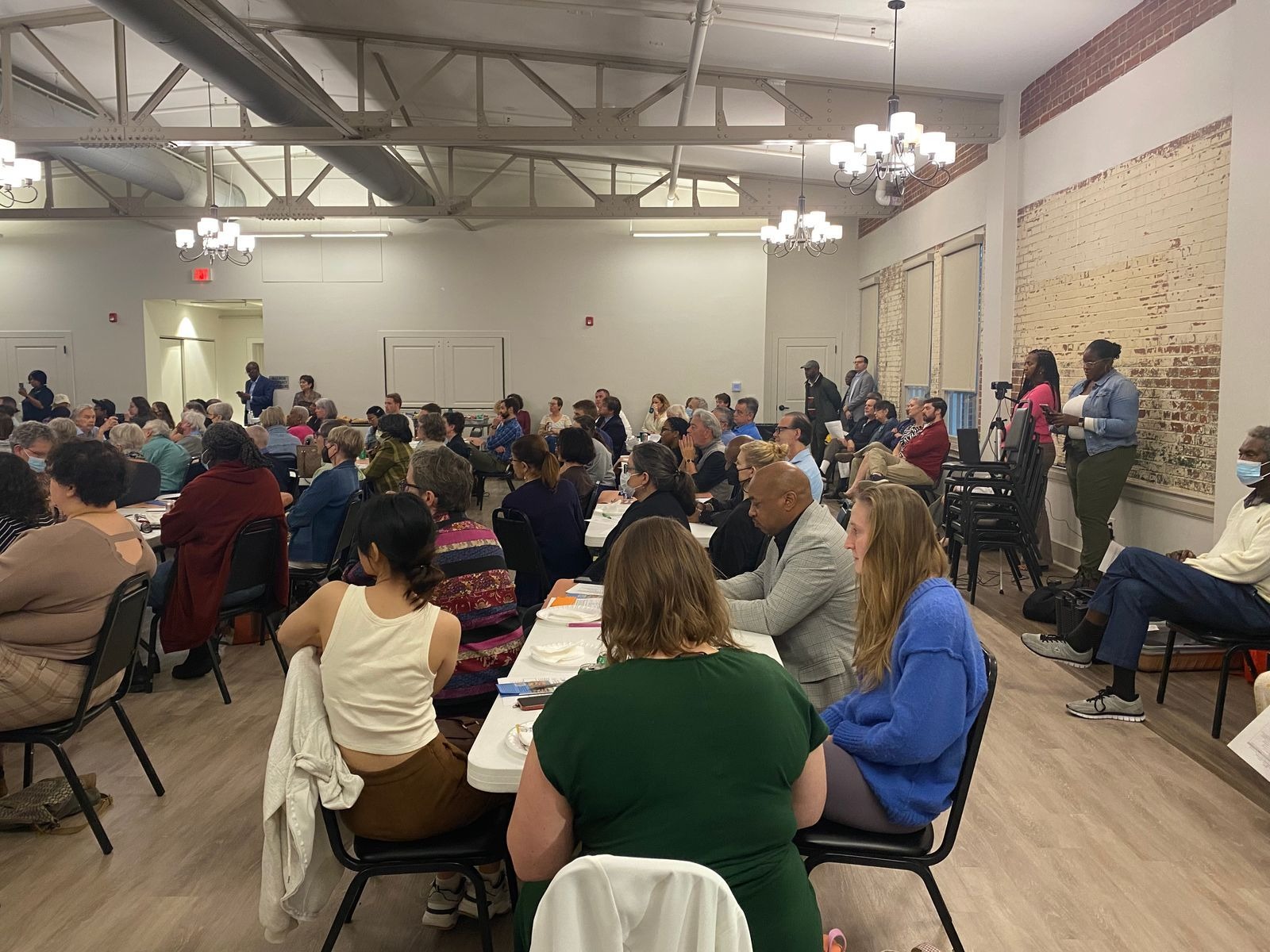By Ali Rockett, The Post and Courier
Despite near total compliance with recommendations from an earlier racial bias audit, racial disparities persist at the Charleston Police Department, a recent review found.
Outside researchers were hired by the city last year to assess the department’s fidelity to the more than 70 recommendations from the 2019 audit. Geoffrey Alpert, a University of South Carolina criminologist, Kyle McLean, a policing expert at Clemson University, and Bob Kahle, a sociologist who runs his own strategic planning and research firm, applauded police for a “good faith effort” finding that all but two recommendations were complete or currently in progress four years later.
Police changed policies and improved data collection, allowing for more robust analysis of their practices. The resulting study found that disparities, especially among traffic stops, have increased since 2019, according to the External Review and Assessment.
The report found that Black drivers are stopped more often than White drivers, even though they are a smaller part of the driving public. When cited, Black drivers are more likely to receive multiple tickets than their White counterparts.
When police have cause enough to search a vehicle, contraband is found in 70 percent of searches of White drivers but in only about half of the searches of Black drivers. This suggests that Black drivers are searched at higher rates, the analysis said. Still, Black drivers account for more than four times the number of arrests than White drivers.
The External Review and Assessment is the latest in a years-long process examining perceived racial bias within the department’s ranks. It will be the focus of the community forum hosted by Charleston Area Justice Ministry, the city’s Citizen Police Advisory Council, Human Affairs and Racial Conciliation Council and the YWCA Greater Charleston.
The Jan. 25 meeting is open to the public and begins at 5:30 p.m. at St. Patrick Parish Center, 134 St. Philip St.
“Our hope, or my hope, at least, is to have citizens attend who have an interest in public safety and want to be engaged in helping the new chief and new administration shape its public safety agenda,” said Jerry Harris, co-chair of Human Affairs and Racial Conciliation Council. “The report suggests that a lot needs to be done to improve communications with the community regarding initiatives that the department is undertaking, and progress it is making.”
The report criticized not just the department but also the Citizen Police Advisory Council for its lack of community input. The council was created to act as a liaison between the police and the public, but Paul Tamburrino, who chairs it, said it has been difficult to get participation in their meetings.
The department isn’t expected to be an active participant in Thursday’s meeting. Suzanne Hardie with Charleston Area Justice Ministry, a faith-based social justice organization that has been pushing for the racial bias audit and subsequent assessment since 2015, called that likely absence “disappointing.”
“It’s key to a safe city that we trust the police,” she said. “To trust, we need to hear from the department.”
The disparities found in the report are “long-standing and persistent,” she said, but they were hard to pin down before because of issues with the department’s data. She expects people will want to hear how the department is going to address them, and want answers Thursday.
Chief Chito Walker is expected to attend, but he’s there to listen, he said.
Sgt. Anthony Gibson, spokesman for the Charleston Police Department, said they were not so surprised by the recent findings that disparities in motor vehicle stops had increased. It’s because of the suggested improvements made in data collection and analysis that have allowed the department to identify where the issues are. The next logical step is to find out why, then find solutions.
“We’re not just stopping here,” Gibson said. “We want to determine why disparities exist, because we don’t know that from either report.”
Gibson said the department, and its chief, is committed to seeing the process through. It began under Walker’s predecessor, the late Luther Reynolds, who died in May. It remains to be seen how much support Mayor William Cogswell’s new administration will lend to a continued study of inequities, especially after running on a platform of increased policing.
Neither the original audit nor the latest review found direct evidence of bias, which requires proving an intent to discriminate.
“There’s no data in our report that indicates that the Charleston Police Department is racially biased,” said Kahle, one of the authors of the report. He will provide an overview of their findings and another set of recommendations for the department at the Jan. 25 meeting. “If you can’t demonstrate intent, you don’t have bias. You have disparities.”
But those disparities have real consequences and harmful outcomes for minority communities, he added, especially Black people who are stopped, searched and arrested at higher rates.
Kahle said he was surprised by the size of the disparities. The original auditors, a Virginia-based firm called CNA, “were hopeful that implementing the recommendations would increase equity in policing,” he said. “But this is really difficult stuff, not just for Charleston, but for police departments all over the country.”
To register online, visit http://tinyurl.com/5n8kb9y8.
View the original story here.






